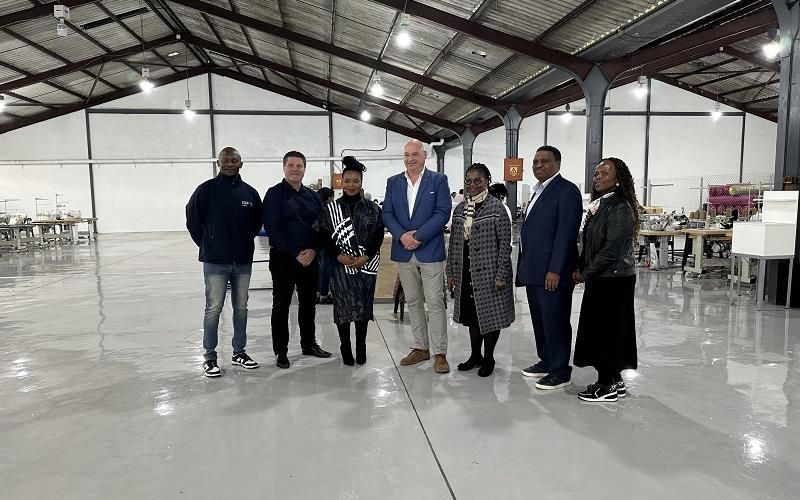The South African Youth Economic Council recently hosted a gala dinner to discuss how to combat youth unemployment and encourage economic growth in the country. Deputy President Paul Mashatile emphasized the importance of investing in education and skill development for youth, particularly in industries such as mining, renewable energy, and technology. He also promoted entrepreneurship, the expansion of SMEs, and bridging the education-employment gap through practical skills training and accessible financial institutions. The government and private sector must work collaboratively to empower the youth and create a prosperous future for South Africa.
Investing in the Future: Youth Potential and Education
The South African Youth Economic Council (SAYEC) recently hosted a gala dinner, where Deputy President Paul Mashatile gave a keynote speech centered on the topic: “evaluating government and private sector strategies essential for widespread youth employment and business opportunities in South Africa.” The gathering consisted of young entrepreneurs, business executives, and government representatives, all keen to tackle the obstacles faced by the nation’s youth in the existing economic environment.
Mashatile expressed his confidence in the abilities of young people, stating that their enthusiasm, ingenuity, and persistence could reveal unexplored possibilities within the economy. He underscored the significance of investing in education and skill development, especially in burgeoning industries like mining, renewable energy, and technology.
Since 1994, the government has emphasized youth development and implemented several initiatives to combat youth unemployment, including the Youth Employment Service (YES) Programme in 2018. As part of the Presidential Youth Employment Intervention (PYEI), this program is the country’s most extensive social impact initiative for job creation, assisting over 100,000 youth in obtaining work experience.
Encouraging Entrepreneurship and Industry Growth
Mashatile also stressed the value of entrepreneurship and the expansion of small- and medium-sized enterprises (SMEs). He pointed out that the government had implemented programs such as the Black Business Supplier Development Programme to enhance the competitiveness and sustainability of black-owned SMEs. This initiative concentrates on cost-sharing grants to help businesses integrate into the mainstream economy and generate employment opportunities.
The Deputy President recognized the difficulties of incorporating young people into the economy and called on them to connect with investors to secure funding and turn their concepts into reality. He suggested creating innovative financing methods, including venture capital funds and microcredit programs, specifically aimed at young entrepreneurs.
Additionally, Mashatile promoted youth-led manufacturing and industrial pursuits as a means to transition from exporting raw materials and achieve economic success. He called upon the private sector to support government endeavors in cultivating the people of South Africa by reinvesting capital and resources into emerging industries.
Bridging the Education-Employment Gap
To close the divide between education and employment, Mashatile recommended providing practical skills training in sectors experiencing high worker demand. Apprenticeship opportunities, collaboration with industry, and investments in vocational schools can furnish youth with job-ready skills, making them appealing to prospective employers.
A critical component of the Deputy President’s address was the discussion around the requirement for accessible financial institutions for young individuals, particularly those residing in remote areas. He identified the Industrial Development Corporation as a significant contributor to the creation of black industrialists in the country.
As the world shifts toward digitalization, Mashatile highlighted the necessity of adjusting the Technical Vocational Education and Training (TVET) system and local colleges to accommodate the evolving demands for skills.
He concluded his speech by quoting Frantz Fanon: “Each generation must, out of relative obscurity, discover its mission, fulfil it, or betray it.” The current mission is to attain economic freedom for the youth, and collectively, they can achieve financial autonomy in their lifetime.
In conclusion, the South African government and private sector must prioritize policies that promote entrepreneurship, enhance vocational education, improve access to financial resources, and encourage investment. By working together, they can empower the youth and lay the foundation for a prosperous future for South Africa.
1. What was the topic of the keynote speech given by Deputy President Paul Mashatile at the SAYEC gala dinner?
Deputy President Paul Mashatile gave a keynote speech at the SAYEC gala dinner centered on the topic of “evaluating government and private sector strategies essential for widespread youth employment and business opportunities in South Africa.”
2. What did Mashatile emphasize as being important for youth development?
Mashatile emphasized the importance of investing in education and skill development for youth, particularly in industries such as mining, renewable energy, and technology.
3. What government initiatives have been implemented to combat youth unemployment in South Africa?
The government has implemented several initiatives to combat youth unemployment, including the Youth Employment Service (YES) Programme in 2018, which is the country’s most extensive social impact initiative for job creation, assisting over 100,000 youth in obtaining work experience.
4. What did Mashatile stress as being of value for youth development and industry growth?
Mashatile stressed the value of entrepreneurship and the expansion of small- and medium-sized enterprises (SMEs) as being essential for youth development and industry growth.
5. What program has the government implemented to enhance the competitiveness and sustainability of black-owned SMEs?
The government has implemented the Black Business Supplier Development Program to enhance the competitiveness and sustainability of black-owned SMEs. This initiative concentrates on cost-sharing grants to help businesses integrate into the mainstream economy and generate employment opportunities.
6. What did Mashatile recommend to close the divide between education and employment?
To close the divide between education and employment, Mashatile recommended providing practical skills training in sectors experiencing high worker demand. Apprenticeship opportunities, collaboration with industry, and investments in vocational schools can furnish youth with job-ready skills, making them appealing to prospective employers.
7. What did Mashatile identify as a significant contributor to the creation of black industrialists in the country?
Mashatile identified the Industrial Development Corporation as a significant contributor to the creation of black industrialists in the country.
8. What did Mashatile conclude his speech with?
Mashatile concluded his speech by quoting Frantz Fanon: “Each generation must, out of relative obscurity, discover its mission, fulfil it, or betray it.” The current mission is to attain economic freedom for the youth, and collectively, they can achieve financial autonomy in their lifetime.








